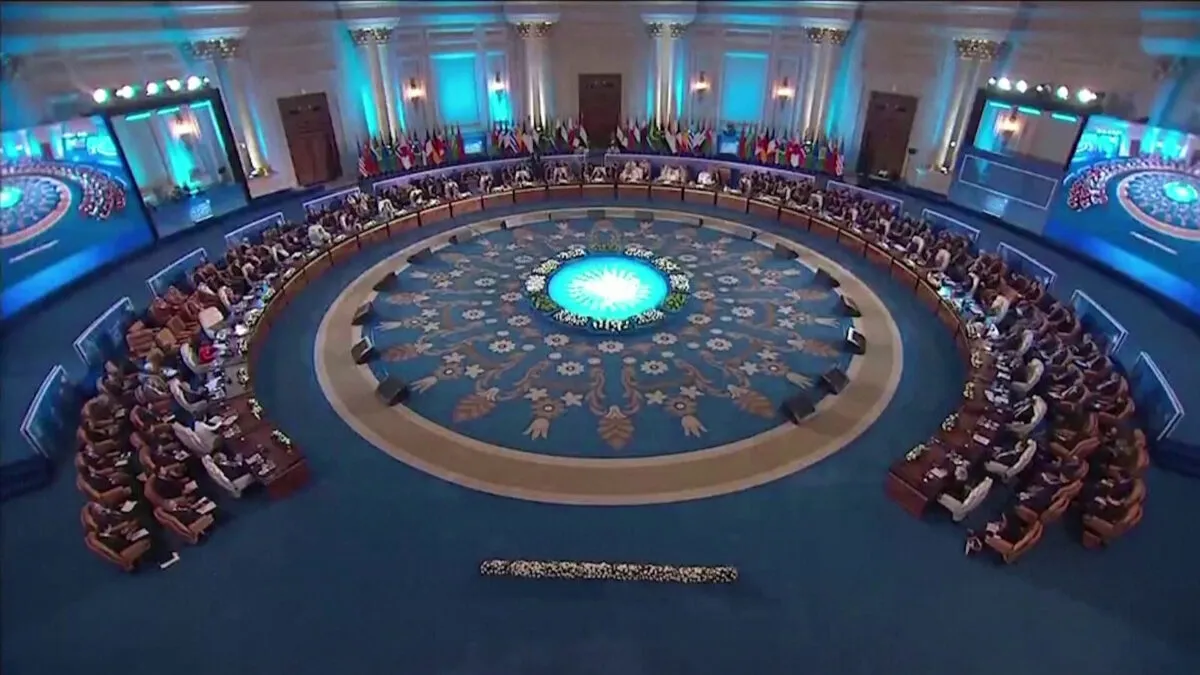(3 minutes read)
In a high-profile gathering of world leaders, President Cyril Ramaphosa emphasized the urgent need to contain the Israel-Hamas conflict to prevent potential spillover into neighboring regions. The summit, held in Cairo, Egypt, was a gathering of power and diplomacy. It witnessed the participation of 12 global leaders and representatives from the United Nations and the European Union, who graced the event with their presence, collectively seeking a resolution to the bloodshed in Gaza.
In a high-profile gathering of world leaders, President Cyril Ramaphosa emphasized the urgent need to contain the Israel-Hamas conflict to prevent potential spillover into neighboring regions. The summit, held in Cairo, Egypt, was a gathering of power and diplomacy. It witnessed the participation of 12 global leaders and representatives from the United Nations and the European Union, who graced the event with their presence, collectively seeking a resolution to the bloodshed in Gaza. The conflict, which had been unfolding for 16 days, originated with a surprise attack on Israel by Hamas, resulting in a full-blown war. Negotiations ensued, leading to the much-needed allowance of humanitarian aid into Gaza, where residents had been facing dire shortages of essential supplies, including food and water.
President Ramaphosa stressed that the international community bears a collective responsibility to seek a resolution to this prolonged conflict. The only path to achieving peace lies in realizing the legitimate aspirations of the Palestinian people, ensuring their human rights and dignity, stated President Ramaphosa
The South African leader called for United Nations-led negotiations to facilitate a comprehensive resolution to the ongoing conflict. The summit marks a significant diplomatic effort to bring about much-needed stability and peace in the region, underscoring the importance of international cooperation in addressing this complex and longstanding issue.
UN Secretary-General Antonio Guterres set the tone for the summit, terming the situation in Gaza a ‘humanitarian catastrophe.’ He called for a ‘humanitarian ceasefire,’ emphasizing the urgent need for sustained aid for Gaza’s populace, the release of all hostages, and initiatives to prevent violence from bleeding into peaceful territories. While acknowledging the grievances of the Palestinians, Guterres condemned Hamas for its attacks on Israeli civilians, delicately balancing the scales of blame.
The Cairo Summit for Peace convened in a bid to quell the escalating violence in the Gaza Strip. The international conclave, marked by palpable tension and diplomatic fumbling, aimed to broker peace and construct a humanitarian bridge between Israel and Hamas. Yet the summit ended with a sense of futility, revealing the complexities of this protracted conflict and the intricate web of geopolitical interests that bind it.
Read Also:
https://trendsnafrica.com/imf-lowers-gdp-growth-of-mena-region-due-to-israel-palestine-conflict/
https://trendsnafrica.com/israel-set-to-deport-eritrean-workers-involved-in-clashes/
While the summit’s intent was noble, its execution was hampered by notable absences. Israel, a key player in the conflict, was missing from the discourse. More glaring was the absence of any senior US official, casting a shadow over the summit’s potential outcomes. The European countries present struggled to formulate a united approach to the crisis, revealing the chasms in global consensus. Despite its shortcomings, the summit succeeded in facilitating the entry of the first convoy of aid trucks into southern Gaza.





